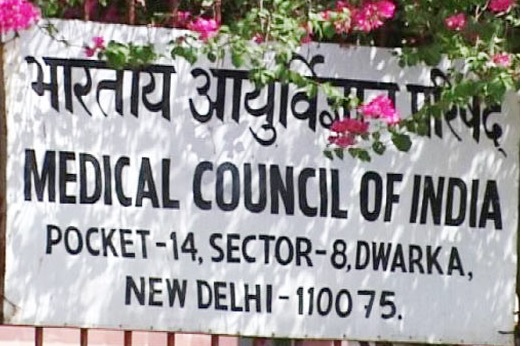
NEW DELHI: In its eagerness to restructure the Medical Council of India (MCI) to overhaul medical education in India, the Centre is taking away its autonomy.
Under the Indian Medical Council Act 1956, the states and the Centre nominate and elect members to the MCI, which is India’s apex body for regulating medical education and registering doctors, but a new proposal gives all authority to one committee constituted by the government.
There is need for overhaul because medical education and sciences have evolved rapidly over the past few decades, but checks and balances are essential to ensure the MCI doesn’t lose its autonomy and democratic structure.
The PMO-constituted three-member committee headed by Niti Aayog vice chairman Arvind Panagariya has recommended the Indian Medical Council Act 1956 be replaced with the National Medical Commission Bill, 2016.
The draft National Medical Commission Bill, which is open for suggestions till August 31, proposes that a government appointed broad-based search-cum-selection committee select regulators, instead of them being nominated and elected.
The Panagariya committee report is one among several others — including the Standing Committee on health and family welfare report — being consulted before the MCI’s restructuring finally happens.
Health minister JP Nadda admits the health ministry wants more control in the running of the autonomous body. “So far, the government didn’ t have direct control (over the MCI). This way, at least we will be directly responsible (for the decisions taken),” said Union health minister JP Nadda.
OVERHAUL, BUT AT WHAT COST
Doctors don’t see the change happening for the better. “The draft bill and the report by NITI Aayog should have suggested a policy to check growing commercial is at ion of medical education, instead the policy directions given shows that it seeks to further accelerate privatisation and commercial is at ion of medical education,” said Dr Abhay Shukla, member, Alliance of Doctors for Ethical Healthcare, which termed the bill a “huge disappointment”.
The functioning of the Supreme Court-appointed Oversight Committee( O C) appointed to oversee the working of the MCI made headlines for the wrong reasons this week when it granted recognition to medical colleges inspected and declared unfit by the MCI for not meeting the teaching and infrastructure standards.
“Our assessors found several discrepancies on the ground, such as lack of adequate infrastructure, faculty, patient load etc. We go by the book, so we didn’t clear them,” said Dr Jayshree Mehta, president, MCI.
During one such inspection, Saraswati Medical College in Unnao, Lucknow, had presented a three-day-old baby as a newborn to convince the inspectors that the hospital had a functioning obstetrics and gynaecology department.
“The colleges were cleared for recognition only after ensuring all of them would comply with the guidelines,” said Justice RM Lodha, head of the OC. “As a one-time measure, the OC has given these colleges time till September for compliance and asked the head of the college management to give an affidavit and a bank guarantee of 2 crore along with the fees to ensure compliance,” he said.
“We welcome any criticism even though what we have done is within the four corners of the mandate given to us by the SC. Our focus is to see the quality of medical education isn’t compromised,” said Justice Lodha.
IMPROVE STANDARDS
There is certainly need to overhaul medical education. “The quality of doctors we are producing has gone down, which is primarily because of the private medical colleges that have been allowed to mushroom even when they don’t have the required infrastructure, patient load or faculty to train aspiring doctors,” said Dr KK Talwar, former chairman, governing body, MCI, and former director of PGI Chandigarh.
MCI members say the restructuring is about medical education and has nothing to do with whispered allegations of corruption. “I don’t understand the ‘cleaning up’ business as no rules were broken, especially in dealing with private medical colleges, since I took over after the MCI was reconstituted in 2013. All parliamentary rules and regulations have been followed,” said Dr Mehta.

